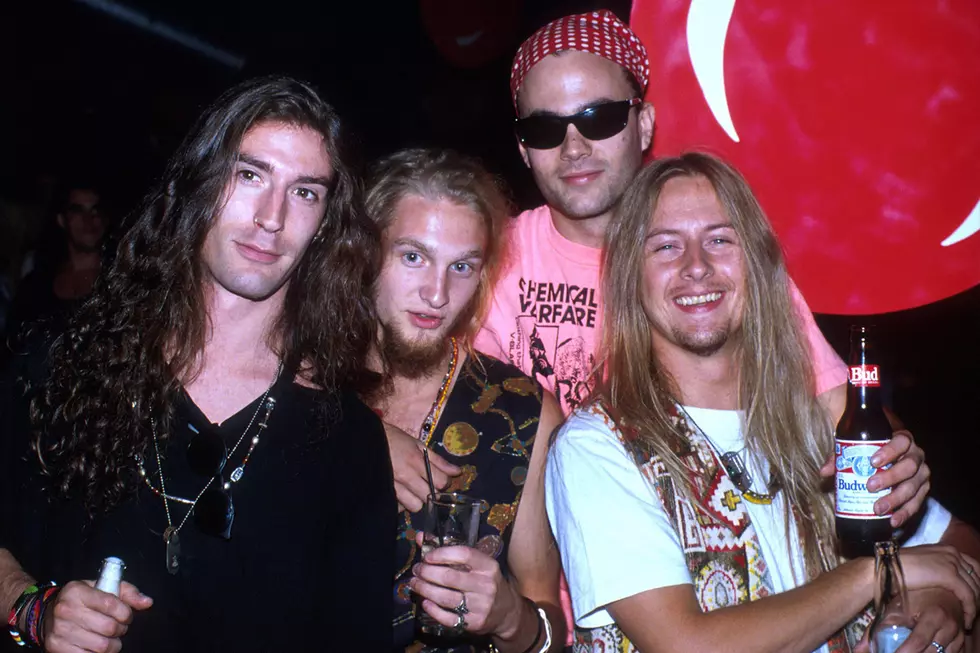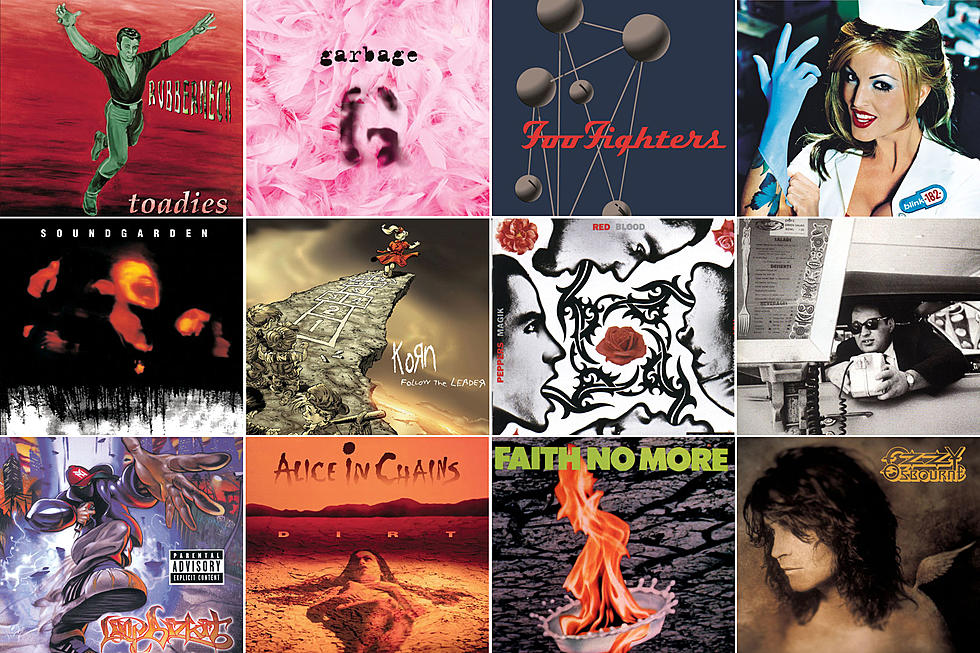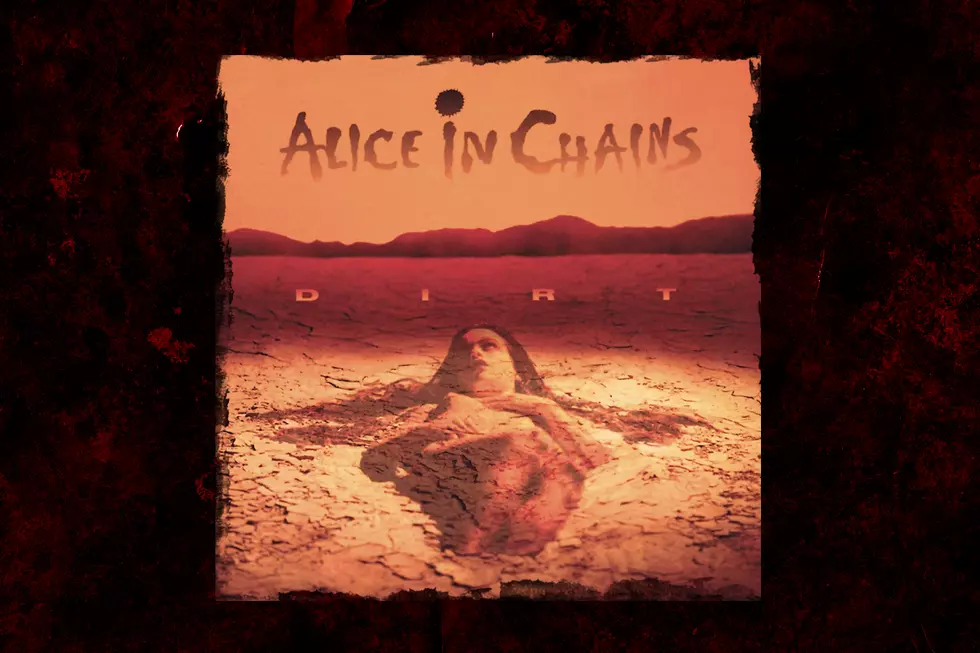
Alice in Chains Recalls Layne Staley’s Sarcasm
Jerry Cantrell and Sean Kinney of Alice in Chains discussed late singer Layne Staley as they reflected on the band’s second album, Dirt, returning to the chart on its 30th anniversary.
The new edition peaked at No. 9 on the Billboard 200 last month, three positions lower than its original arrival in 1992. In a recent interview with Variety, guitarist Cantrell and drummer Kinney recalled how the record represented an explosion of Staley’s writing contributions.
“Layne and I always considered each other a songwriting team without ever discussing it much,” Cantrell said. “When he became interested in playing guitar, he started writing more, writing songs completely like ‘Angry Chair’ and ‘Hate to Feel.’ They were fucking amazing. … I supported that – a great artist and a good guy driven to make good music. They were a step up from what he did on [debut album] Facelift. We pushed each other. Dirt was an evolution for all of us.”
"We were lucky that when we got a bunch of money to do our first major label deal, we insisted on control of what we released as singles [and] how we made albums with no interference from the label – which was rare then," Kinney added. "Every time they told us we were veering toward ‘career suicide,’ we had to remind them that we didn’t have a career. We were only on our first albums.”
Cantrell described the band’s writing process as being “really about what feels good.” "It was about jamming and tinkering," he noted. "With ‘Rooster’ or ‘Angry Chair,’ we just left it as it was from the start. We all just did our best to put ourselves in the mix and elevate those songs to become all of ours while remaining personal testaments from the writers."
At times, though, he admitted, there was “some head-butting” between him and Staley, notably over “Rain When I Die.” "We started playing what each of us had. All of a sudden, I realized that everywhere Layne wrote, I had a space, and vice-versa," the guitarist explained. "Put that together, and even though he was writing something completely different, it all made sense. ... It was a classic Reese’s Cup moment where the chocolate made the peanut butter taste better. Then it went through the collective sieve of all four of us, and got the badass seal of approval for the record."
Dirt has built a reputation for having a depressing, downbeat tone – as did Staley, who died in 2002. But, Kinney argued, “Dirt was never a drug concept album. And Layne wasn’t a dick. He wasn’t tormented but instead, witty, funny and generous. … Part of that album talks about how cool it all is, then five songs later it’s telling you how drugs suck.” Cantrell said Staley was responsible for many “funny” moments as the band worked together, adding that “sarcasm [was] a highly prized commodity in our camp. And Layne was very human. … We were all trying to create something unique, and that can rub on a person sometimes. But that is necessary, part of the process.”
Recalling that Dirt established Alice in Chains as one of the leading lights of the grunge movement alongside Nirvana, Soundgarden and Pearl Jam, Cantrell said, “We might have all had an effect on each other, connected to a really cool movement, and [it was] one of the few times in my lifetime where it felt like the good guys were winning. Dirt was a hell of a record. It stands the test of time, and it’s a powerful piece of work without an ounce of fluff.”
Kinney said their aim of retaining high standards was the reason their catalog was relatively slim for a three-decade career. “We keep things tight. If not, we’d be pumping out albums with a few clinkers in there and we’d be talking about why Alice in Chains’ techno album wasn’t well-received,” he explained. “There’s a reason we’ve only kicked out six albums in 34 years. We’re guarding the legacy of Dirt and everything else we’ve recorded – the diaries of our lives that I was too lazy to write down.”
Top 30 Grunge Albums
More From KKTX FM










